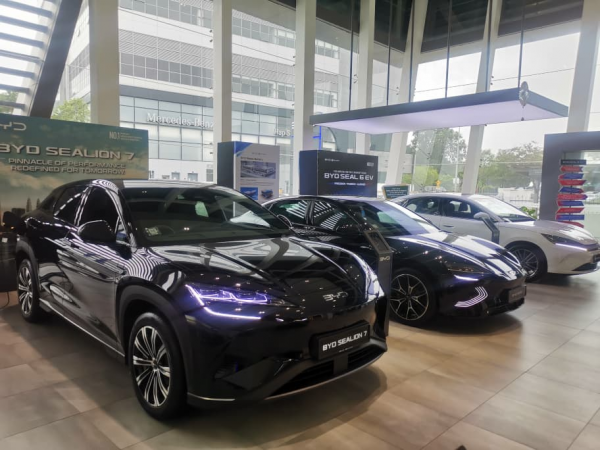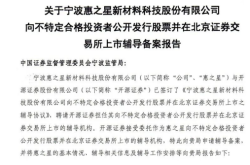Chinese-Brand Electric Vehicles Carve Out a Niche in Malaysia: What Gives BYD Its Pioneering Edge?
![]() 11/24 2025
11/24 2025
![]() 636
636
Propelled by enticing policy incentives and the swift advancement of infrastructure, a host of Chinese automotive brands, spanning both traditional fuel-powered and electric vehicles, are making their foray into the Malaysian market. These include prominent names like BYD, Chery, Great Wall, Geely, GAC Trumpchi, and Zeekr.
Recent data reveals that as of November 2025, the cumulative sales of BYD and its sub-brands in Malaysia have soared past 11,097 units, marking a year-on-year growth rate of roughly 70%. This figure not only underscores the robust presence of Chinese automakers in the local market but also heralds the emergence of a fresh competitive landscape within Malaysia's electric vehicle sector.

As leading automakers converge in Malaysia, the days when vehicle hardware alone could create differentiation are long gone. The true battleground has shifted towards 'software + ecosystem'. BYD, leading the charge in this paradigm shift, has secured a coveted first-mover position, thanks to its software prowess and brand scale.
Malaysia's Electric Vehicle Market Accelerates
According to the latest data released by Malaysia's Road Transport Department in October 2025, electric vehicle registrations in Malaysia have hit a new monthly peak:
In October 2025, total electric vehicle registrations reached 4,345 units, a staggering 177% increase year-on-year, compared to just 1,569 units in the same period of 2024.
From January to October 2025, cumulative electric vehicle registrations soared to 31,273 units, surpassing the 21,789 units registered throughout the entire year of 2024. The annual registration volume is projected to exceed 35,000 units.
Among all fuel types, electric vehicles exhibited the highest growth rate at 177%, while hybrid vehicles grew by 55%. Electric vehicles accounted for 5.34% of the industry total, with gasoline-hybrid vehicles making up 3.44%.
These figures unequivocally demonstrate that, fueled by policy incentives, infrastructure development, and growing consumer awareness, electric vehicle penetration is rapidly increasing from a relatively low base.
To spur electric vehicle adoption, the Malaysian government offers tariff, excise duty, and sales tax exemptions for both imported complete vehicles and locally assembled models, significantly slashing purchase costs. Simultaneously, numerous manufacturers have embarked on electric vehicle assembly and production capacity building, accelerating the aggregation of the industrial chain.
Buoyed by policy incentives, improved product supply, and heightened consumer awareness, Malaysia's electric vehicle market is transitioning from a 'subsidy-driven' to a 'product-driven' phase.
Software and Services: The New Frontier of Competition
As the market scale begins to solidify, the focus of competition among automakers is undergoing a subtle shift. Hardware configurations and driving range have become baseline requirements, while software experience and service ecosystems are now the core of future differentiation.
In the Malaysian market, we discern three key trends:
Intelligent experiences become the norm: Smart cockpits, OTA (Over-the-Air) updates, energy consumption optimization algorithms, charging planning, and vehicle-to-charging station interoperability are emerging as the new benchmarks for consumers selecting electric vehicles.
For the nascent Malaysian electric vehicle market, user pain points persist, including unstable charging station availability, inaccurate navigation planning, lack of remote diagnostic services, and an underdeveloped after-sales network. A mature software and service system not only boosts user trust but also bridges the psychological gap between electric vehicles and traditional fuel-powered cars.
Closed-loop model of vehicle + service + ecosystem: By harnessing driving data, usage habits, and charging behaviors through the vehicle's infotainment system, and then delivering value-added services, membership programs, and social or reward systems via backend software, user stickiness can be significantly enhanced. This software-centric operational model is poised to become the next value frontier in the Malaysian market.
Localization and iteration capabilities are paramount: The ability to accumulate local data, iterate software swiftly, and respond to service demands promptly will determine who can leverage software advantages into a multiplier effect. Compared to hardware-dependent competitors, localization and iteration capabilities will be the linchpin for success in the future market.
BYD's Unrivaled Pioneering Edge
Against this backdrop, BYD has undoubtedly emerged as a standout. According to data from Malaysia's Road Transport Department, from January to October 2025, BYD performed exceptionally well in Malaysian electric vehicle registrations, with multiple models securing the second, third, sixth to eighth, and fifteenth positions in the market rankings, showcasing a clear overall advantage.
In reality, BYD's advantage lies not only in its diverse model lineup and price competitiveness but also in its accumulated capabilities in software and ecosystem development.
First, its software foundation is mature and adaptable. BYD has already established a sophisticated DiLink infotainment ecosystem in China and global markets, with systems such as smart cockpits, OTA updates, and energy consumption optimization algorithms thoroughly validated. Upon entering the Malaysian market, this mature capability naturally conferred a first-mover advantage.
Second, its ecosystem aggregation is robust. By integrating the vehicle's infotainment system, charging service platform, membership program, and financial products, BYD is not merely selling cars but also deploying a 'service + ecosystem' strategy. In the nascent Malaysian market, this ecosystem closed-loop can swiftly lock in users and create data barriers.
As of October 2025, BYD's registrations in Malaysia have surpassed 10,000 units. This has not only generated abundant local usage data but also accelerated software optimization and iteration. The scale effect has also driven the expansion of dealership and service networks, further enhancing after-sales experience and software update efficiency.
China's Brand Competitive Landscape Undergoes Transformation
From a broader perspective, BYD's pioneering edge implies:
Hardware competition thresholds are diminishing. After driving range and configurations become standardized, software experience and ecosystem services will be the key factors shaping user choices.
The market landscape is accelerating its stratification. BYD holds the upper hand with its software ecosystem and scale advantages, while brands like Chery, Geely, GAC Trumpchi, and Zeekr need to devise differentiated strategies, such as more localized service experiences, financial solutions, or charging ecosystem innovations.
The future competition will hinge on data and services. Software and ecosystems not only enhance user stickiness but also convert usage data into operational decisions and commercial gains. Whoever can swiftly establish a localized data system will seize the high ground in the next phase of Malaysia's electric vehicle market.
Market Opportunities in the Software Revolution
Malaysia's electric vehicle market is transitioning from a 'hardware revolution' to a 'software revolution'. Over the next 3–5 years, policy incentives, infrastructure improvements, and rising consumer awareness will drive rapid market expansion.
BYD, with its pioneering scale and software ecosystem, is poised to sustain its advantage in the following areas:
User lifecycle management: By analyzing data from the vehicle's infotainment system and backend platforms, precise operations and value-added services can be achieved.
Localized service iteration: Rapidly responding to local demands to enhance user experience and form service barriers.
Ecosystem closed-loop construction: By integrating the vehicle's infotainment system, charging services, financial products, and membership programs, a data closed-loop can be formed to achieve commercial monetization.
It is foreseeable that in Malaysia's electric vehicle market, victory will no longer hinge solely on hardware but on the comprehensive capabilities of software, ecosystems, and services. As a representative of Chinese brands, BYD is leveraging its exclusive advantages to gain an early lead in this 'soft power competition'.



